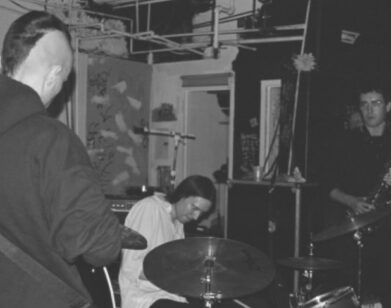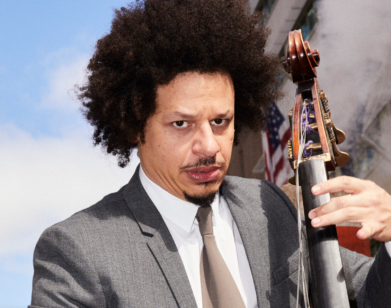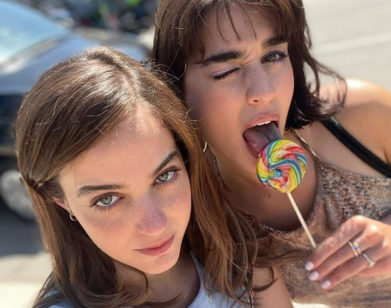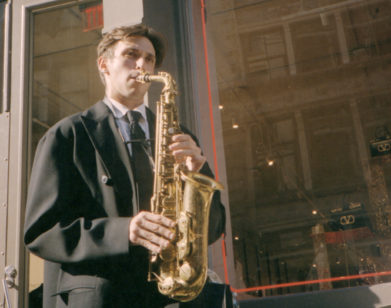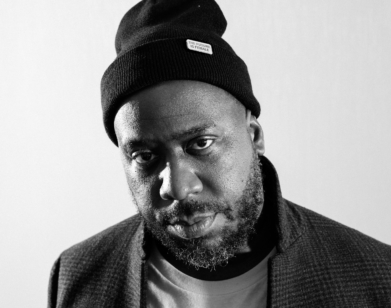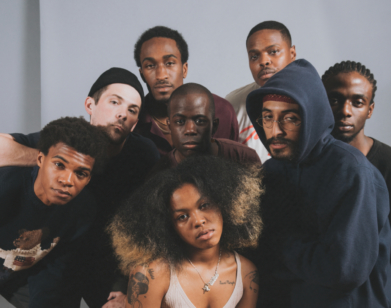Onyx Collective is New York’s coolest downtown jazz crew

Do not try to pin down Onyx Collective. Are they a bop trio? Are they a funk colossus? Are they a rapper’s favorite band to sample? The nebulous web of New York musicians, armed with instrumentation typical of a jazz band, can’t be held to any single sound. But this is no identity crisis. Made up of lifelong New Yorkers, and founded by sax player Isaiah Barr, the group’s story and sound are woven into the fabric of the city. On any given night you might find a couple of them riffing in a coffee shop, or onstage with Dev Hynes or Princess Nokia, or in someone’s living room brainstorming off some poetry.
Last Wednesday, they were playing their version of “punk tunes” at Greenpoint’s Saint Vitus, with L.A. hardcore stalwarts Trash Talk. The following Friday, they gathered a septet—Barr, drummer Austin Williamson, Julian Soto, Jack Gulielmetti, Julius Rodriguez, Nick Hakim, and Felix Pastorius—to open for R&B-funk artist Gabriel Garzón-Montano at Warsaw. Later that night, Barr was seen ripping onstage at Irving Plaza, with the rapper Wiki. And as broad as their musical reach is, they’re also the go-to gig band for many in the art world establishment. Having come up in part through support from New York-based radio station Know-Wave, and drawing a fanbase as disparate as their own sound, they are chameleons of the downtown art and music scene.
In a Lower East Side apartment with a practice space fashioned out of a small shed on a graffitied roof, Barr and Williamson met to discuss their new records, the band’s roots, and a whole lot more. On December 1, they released a new collection of recordings, Lower East Suite Part Two, an edited and mixed iPhone recording from a live performance at a streetwear shop, Good Company. Just a couple weeks earlier, the collective had become a New Orleans funeral march band, to accompany an outlandish performance piece, by the left-field artist Brian Belott. Our conversation kicks off from how the band met Belott, at a gallery in Los Angeles a few years ago.
ISAIAH BARR: We had gotten kicked out of our hotel the moment before the set. They put us in the worst hotel, probably the cheapest hotel in the radius. When we walked in, Josh Benitez, a pretty tough guy from the South Bronx, was like, “Bro, I don’t know about this shit.” So Aaron Bondaroff, the night before, decorated the whole fucking hotel. Aaron was like, “I know it’s not much, we just gotta make it feel like home!” So he buys us fake rose petals. He buys us this Hallmark photo frame of this white family. He buys us four porn magazines. So he had us put the porno all over the wall and we left it that way.
AUSTIN WILIAMSON: I slept on the couch, two seats together. Josh just got fucked up and knocked out in the bed, so he ended up having the whole bed pretty much.
BARR: But we went back to the hotel and there was as straight up lock-box on our door! And I was like, “What the fuck?” And they come out of nowhere and were like, “So sorry! You have to leave! So sorry!” And we’re like, “What? All of our shit is in there!” And they bring us to this shed and all of our shit is in a garbage bag. Josh is in a big-ass jacket walking down the road in 85 degrees. We’re walking to the gallery. We were going to be the band playing the after party and we’re walking in at 7:55 PM and we’re like, we can’t walk through the gallery with our luggage and instruments and Josh in his big South Pole jacket. So we go through the back alley and Aaron comes out and we were like, “We got kicked out of our fucking hotel!” He throws all of our shit in a closet and is like, “Set up! Just set up.” Obviously we were distracted to say the least. Then we met Brian Belott. And Brian gave us some weed and we chilled out. The second set we played for like two and a half hours straight into the night and as the people left it got more to the core. The show just got better and better. I wish it was recorded. There’s tiny videos and like Kelela came up and guested with us, and we didn’t even know who she was at all, it was years ago.
DALE EISINGER: Austin, you said you had a different view of the set?
WILIAMSON: Because I was smacked, I chilled out as soon as that happened. I was tight too and was like, “What the fuck,” but keeping my chill. I didn’t give a fuck how we sounded because I just wanted to play and that was wild. I was like, “All of these people here have no idea what just happened.”
EISINGER: How is most of your music recorded?
BARR: It’s all over the place. Know-Wave recordings, digital, microphones. A room mic situation. It’s a very basic atmosphere.
WILIAMSON: Just a 57 or 58 on a mic stand or on the floor.
BARR: Yeah exactly, or on a coat hanger. That’s the first record. The third one, out this year, is all recorded on tape with pre-amps and vintage microphones, all analog, no computers or iPhones, and all in one place. But that one is definitely a different thing. It’s so similar but so different in a lot of ways and it functions as a very different kind of record and body of music.
EISINGER: Why do you say it functions differently?
BARR: It’s all composed so there’s nothing that is improvised at all in a sense of starting from nothing.
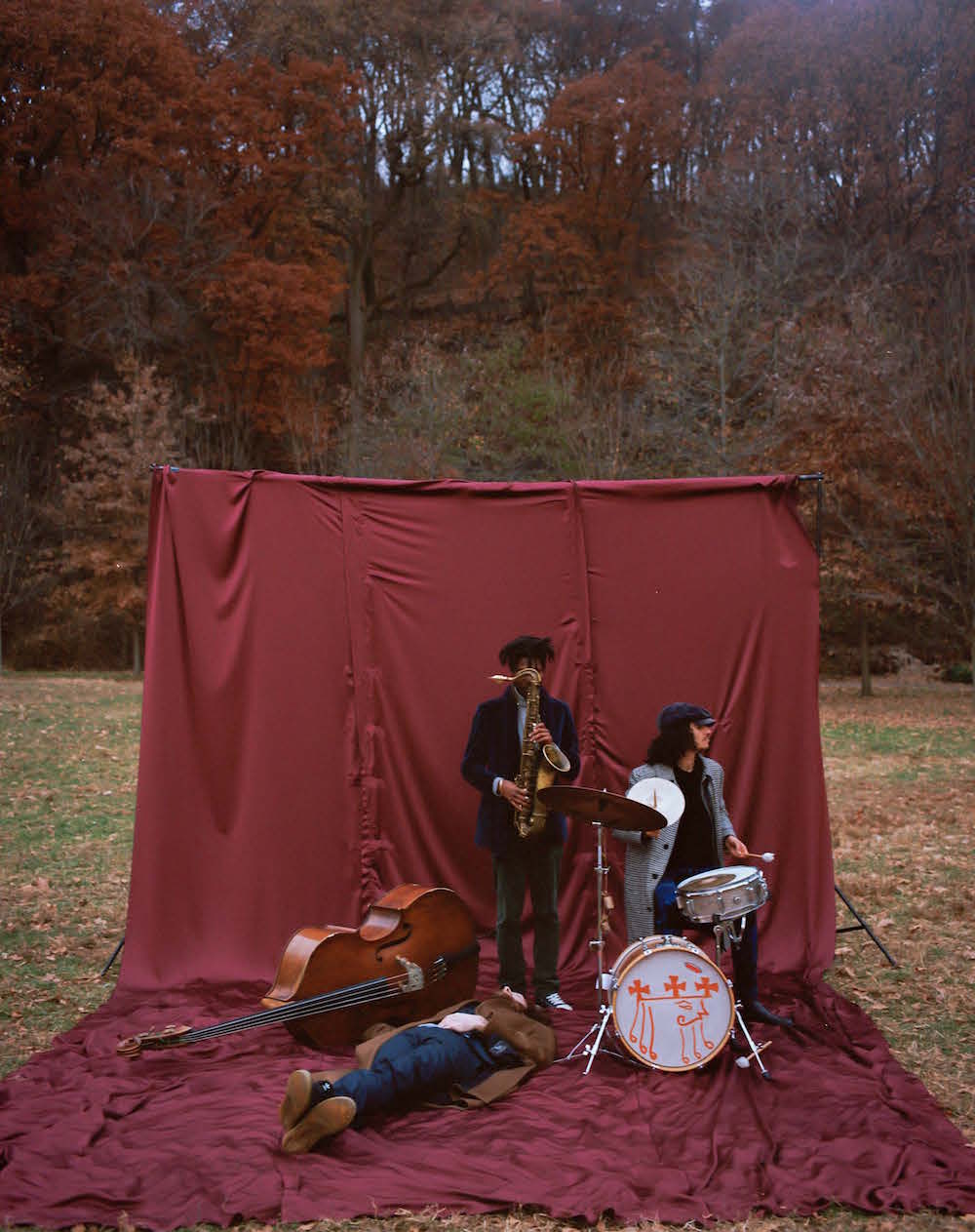
WILLIAMSON: It’s definitely motif style.
BARR: There are charts I was reading myself, so it’s completely different. Some of the songs are limited in proposition so it’s like within a confine. It’s not a solo for anyone.
WILLIAMSON: It’s definitely a concept of an idea that we kind of talked about before and intentionally going to this place.
BARR: Right, whether it was a theatrical concept or limitations of just the sound concept.
WILLIAMSON: Or just life experiences.
BARR: Yeah definitely, which is what I meant with theatrical but he’s more correct. Like we’re going to play an eviction notice and portray that. Then it became, how do we want to record it? That whole period kind of happened this summer, really patiently, no rush, letting it happen.
EISINGER: Is it hard to be that patient with this kind of music?
WILLIAMSON: It’s challenging, I wouldn’t put it as hard, but it’s challenging.

BARR: Yeah, it’s challenging, [but] it’s not hard because it’s so rewarding.
WILLIAMSON: Yeah and it’s beautiful and it’s fun and we love this shit.
EISINGER: What about the eviction notice? There has to be a story behind that.
BARR: I had an idea of wanting to have me and Roy, my mentor, playing our saxophones and wanting to experiment with this droning hypnotic state. So I asked Roy to play the roll of the tenant with the alto, screaming and crying, and I was the landlord on the tenor, barking. But the funny thing was Mike was like, “Guys, please just start at five, my landlord is downstairs and I don’t want him to bug out.”
WILLIAMSON: It’s also personal! We all get caught up in just imagining your own shit and just thinking and ushering that imagination.
BARR: We also had my uncle’s house. He lived in the Village since like ’78, in this apartment and that’s where the name Onyx Collective came from, was the building that was called Onyx Court. That house was kind of like our youth hostel. And we kept drums there. When you’re really young, having something like that is impossible. You can’t run into it, you can’t build it, you can’t make it, you can’t even conceive it.
WILLIAMSON: Because you can’t even think about it because money comes into it or opportunity.
BARR: We had crazy jam sessions there in the beginning, like massive hits. I have videos of us in the living room. There are legendary photos that are like damn. Wiki would leave and then Princess Nokia would come through and rehearse, like four-hour, five-hour rehearsals all the time.
EISINGER: Was your uncle like a head or was he just super supportive?
BARR: My uncle was beyond supportive but he’s a big activist. He has AIDS and works as an AIDS worker. He’s never really had another job. His life was defined by the fact that he got AIDS. He was in ACT UP and TAG and all that. So my uncle is super, super East Village. He would come through, smoke joints and just be like, “Yo, whats good? What are you listening to?” My uncle is the OG for the band to be honest because he really let us rock. We would be smoking the crib out and people would be complaining about that and the noise and he would just be like, “What the fuck are they complaining about?” When we left the house it was so emotional. We had our last session with him and of course there was a joint and wine and just saying goodbye to the crib.
EISINGER: Where do you guys see jazz music fitting into the entire scene?
WILLIAMSON: Do what you want to do and vibe how you want to vibe. We’re trying to bring the spirit of being yourself and being okay with that. Everybody’s a clique now; everybody’s a unit, a band, and that’s not bad, but everybody’s the same in it. Totally the same! Nobody has the guts. Obviously everybody is different, we all have different fingerprints and shit, but it’s just the mindset.
EISINGER: That spiritual aspect you mentioned, that is what’s most important and that’s what is most common in the music we talk about.
BARR: Spot on! And Blondie, and all the cats, I just got put onto The Nuns and I was listening to their album from 1980 and the spirit is so there. You can feel it. DNA, all of them. I think the thing that one should remember is that things change, things are seasonal. Why can a painter make a sculpture, and nobody’s like, “Oh my god! The painter made a sculpture!” Or if he’s a woodworker and he decides to make something out of metal, it’s just like, “Oh cool, he did that.” A painter can even make a movie and it’s like, kudos! But if a musician nowadays…
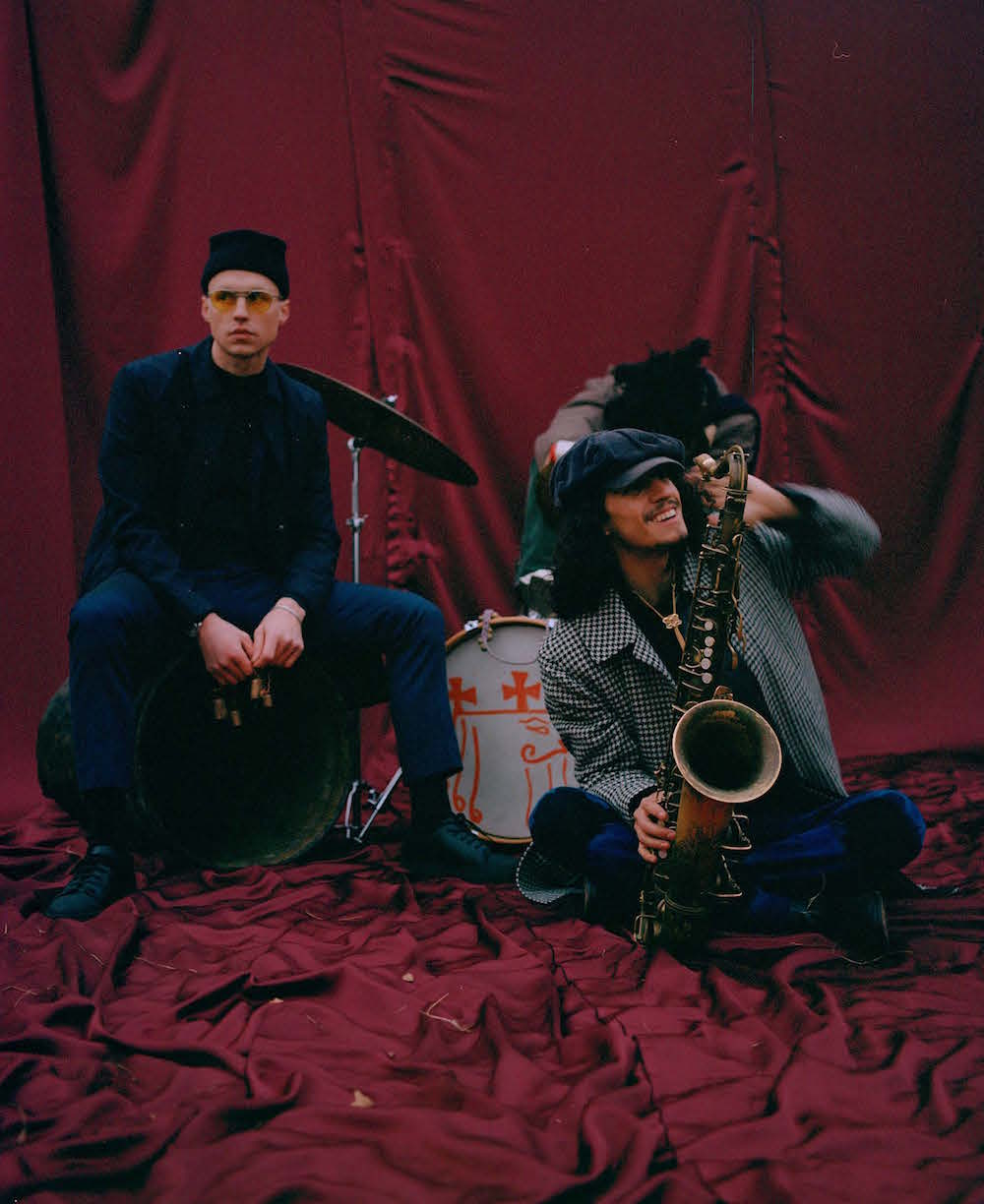
WILLIAMSON: We’re all figuring this shit out too, you know?
BARR: I think we’ve been really lucky and really grateful and blessed for just being able to connect with people. New York has that spirit where it’s like, you play funk, you play punk, I play rock, you play jazz? Okay let’s get a band together! So your question, we’d really need a sleeping bag because we’d be here forever trying to dissect it because we don’t just play jazz. You do one thing, that one thing is a little bit not-so-common, then you get kind of put under a microscope for that and you have to define it.
EISINGER: I think the genesis of my question is that to exist in the world, people want you to be in a box.
WILLIAMSON: They want you to fit in a box or if they don’t know what it is or haven’t seen it, they’re going to put it under a microscope and box it into one thing because they don’t understand it.
BARR: The annoying thing is that everybody wants everyone to be front street now. Mystery in life is a beautiful thing, and not explaining things is a beautiful thing and just trying things, or even not trying, doing it! It feels so forced and so angry to be like, “We’re going to prove this with our music!” Because we just made the music for fun and because we had homies who are amazing singers and we wanted to and had to make music with them and it took a different life of its own.
LOWER EAST SIDE SUITE VOLUME TWO IS OUT NOW ON BIG DADA RECORDS.

